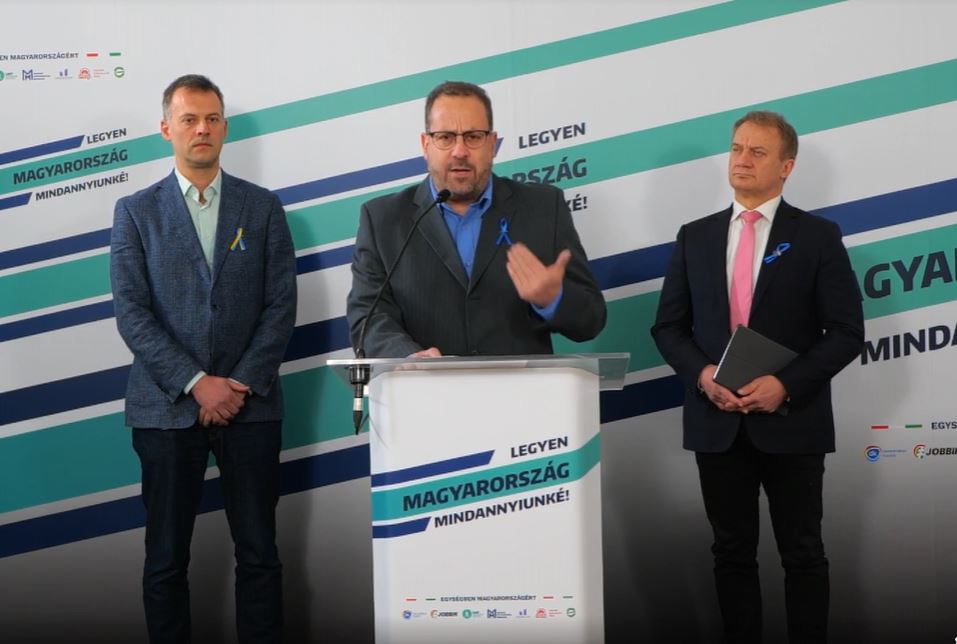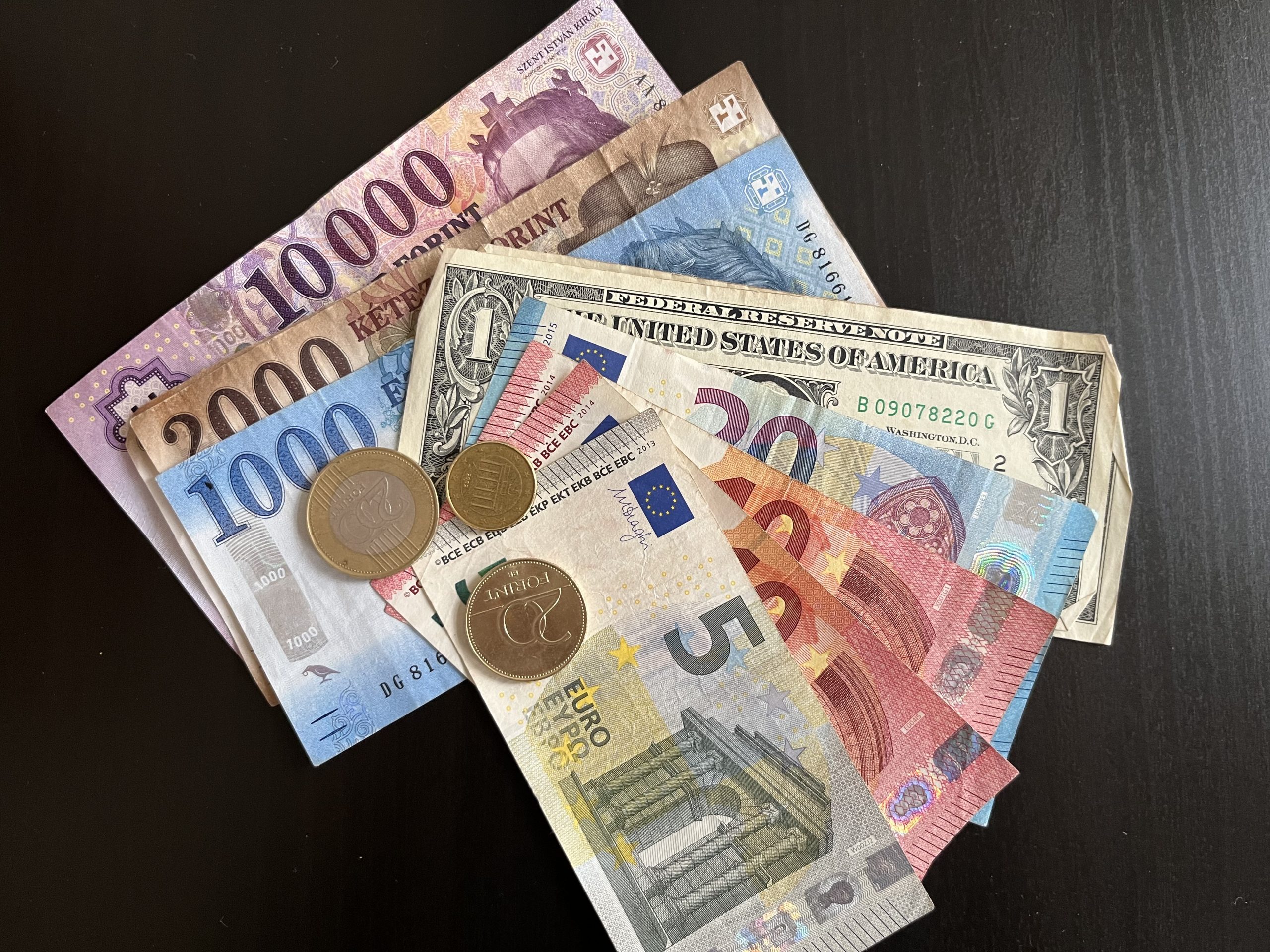
The recent weakening of the forint has resulted from the government’s “ill-advised, unconvincing economic policy”, representatives of opposition parties said on Tuesday.
Zoltán Vajda, a candidate of the united opposition in Budapest’s 13th district, told an online press conference that despite the government’s “lies”, the Ukraine war was not the sole reason for the weakening of the forint, considering that other currencies in the region weakened to a much lesser degree.
“Only the introduction of the euro without delay could protect Hungarian people,” he said and promised that in case of a change of government, the date of euro accession will be announced.
Momentum deputy leader Márton Ilyés said NATO was the guarantee to military security and the European Union to economic security. Prime Minister Viktor Orbán’s policies “loosened and ripped up” this network of security, he added. He called for energy policy which places emphasis on renewable energy instead of dependence on Russia. He added that the current opposition was the guarantee to the reopening of EU resources and joint action against Russian pressure.
DK deputy leader László Varju said the “malicious and inhumane” government’s “catastrophic” policies caused a low minimum wage, record weak forint and record high state debt. Over the past ten years, Hungary did not get closer to the introduction of the euro, he said, adding that “Viktor Orbán robbed Hungarians of this security”.
Ruling Fidesz‘s communications director István Hollik said “the left wing’s irresponsible demands” weakened the forint and threatened Hungary’s economy.
Related article
Why is the Devaluation of Hungary's Forint Highest in CEE Region?
While it is true that since Russia’s war on Ukraine most currencies in the Central and Eastern European region have suffered a huge capital outflow, none of the countries have seen the value of their national currency fall as much as Hungary.Continue reading
Hungary receives crude oil and natural gas mostly from Russia and some 90 percent of Hungarian families use gas for heating, he said in a video message. Those who want to extend the sanctions against Russia to the energy sector damage the economy and make the forint weaker, he said, adding that the left wing had demanded the extension of sanctions to the energy sector several times.
featured image: Illyés, Vajda, and Varju at the press conference; via Facebook

